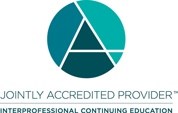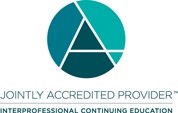Description of Program
Health as defined by the World Health Organization is “a state of complete physical, mental, social well-being, no merely the absence of disease or infirmity” (WHO, 1947). A holistic approach to healthcare considers the emotional and spiritual well-being along with physical wellness. The healthcare professional who incorporates the various variables could have a greater impact on patient outcomes such as risk-factor modification, disease management, changing health behaviors, patient education and illness management.
Who should enroll in this program?
This program is designed for English-speaking health professionals (nurses, advance practice nurses, pharmacists, physicians, physician assistants, psychologists, social workers, and others) with an interest in providing integrated patient care. The participants may practice in a behavioral health setting or a primary care setting.
Program Content
The content is divided into modules. Each module utilizes instructor outlines, audio/video recordings, reading assignments, articles, web resources, case studies to augment the learning process. These methods provide the participant with flexibility in completing assignments. Each module will require submitting self reflection. The modules cover the concepts of care integration, mind-body connection, patient-centered care, health promotion, adult behavioral disorders, common chronic conditions, and the implementation/evaluation of strategies to integrate behavioral health into primary care.
A textbook is not required for this program.
Program Schedule
This independent study is available at any time. The participant will choose when to start and finish the program. The participants traditionally complete the program within four weeks.
Learning Outcome
The learning outcome of this program is to enable the learner to integrate behavioral health and primary care to improve patient outcomes through interprofessional collaborative practice.
Program Objectives
At the conclusion of this program, the participant will be able to:
Delivery of the Content
The learner will log into the program via the internet and work independently through the modules. The independent study provides an opportunity to learn while in the comfort of your own home and office. Program staff are available during business hours by phone or email to assist participants with technical issues or concerns. After the learner works through the content, she/he will complete the comprehensive exam.
Note: Many businesses, especially government agencies or health institutions, utilize security firewalls. Access to web links within program and communication from the instructor, or other students may be blocked. We recommend not using your work email address for this course.
Contact hours
10 contact hours
Successful completion of this program does not guarantee expertise in the content. Clinical experience and judgment coupled with an understanding of the content are necessary to attain competency. Achieving certification is a means to demonstrate competency.
The University of Southern Indiana designates this activity for 10 contact hours for nurses.
The University of Southern Indiana Center for Health Professions Lifelong Learning designates this knowledge based Accreditation Council for Pharmacy Education (ACPE) activity for 10 contact hours for completion of this program. Pharmacists who request to have their contact hours reported to the Certified Pharmacy Education Monitor (CPE) must indicate this request during registration and include the correct NABP e-PID# and Birthdate (mmdd).
The University of Southern Indiana Center for Health Professions Lifelong Learning designates this activity for a maximum of 10.0 AMA PRA Category 1 Credits™. Physicians should claim only the credit commensurate with the extent of their participation in the activity.
The University of Southern Indiana Center for Health Professions Lifelong Learning designates this activity for a maximum of 10 contact hours for health professionals licensed in Indiana.
Criteria for Successful Completion
A certificate for contact hours will be awarded following completion of self-reflection for each module (3) and submission of program evaluation.
The certificate of completion will be sent via email immediately upon the completion of the program evaluation.
Faculty Name and Credentials
We strive to provide interprofessional education by utilizing a variety of content experts, instructors, contributors, and reviewers.
Elizabeth Kalb Ph.D, HSPP, MBA
Jane Swartz DNP, RN, ACNS-BC
Conflict of Interest Statement
There is no conflict of interest for anyone in a position to control content for this activity.
Expiration date: June 30, 2023
Accreditation Statements

In support of improving patient care, University of Southern Indiana Center for Health Professions Lifelong Learning is jointly accredited by the Accreditation Council for Continuing Medical Education (ACCME), the Accreditation Council for Pharmacy Education (ACPE), the American Nurses Credentialing Center (ANCC), the American Psychological Association (APA), and the Association of Social Work Boards (ASWB) Approved Continuing Education (ACE) program to provide continuing education for the healthcare team.
State of Indiana
The University of Southern Indiana is an approved provider of continuing education for several professionals licensed in the state of Indiana, including social workers, marriage and family therapists, psychologists, occupational therapists, occupational therapy assistants, and dental professionals.
State of California
The University of Southern Indiana is approved by the California Board of Registered Nursing. Provider #13378.
To Register: Click on the link above
We recommend that you do NOT use internet explorer or a smart phone to register.
Questions? Call toll-free 1-877-USI-HLTH (874-4584) or 812-461-5217 or email usi1nhpcert@usi.edu
Enrollment Cost
$250
The fee includes access to the program, along with all resources and handouts. A text, if applicable, is not included in the fee.
Pharmacists who request to have their contact hours reported to the Certified Pharmacy Education Monitor (CPE) must indicate this request during registration and include the correct NABP e-PID# and Birthdate (mmdd). NOTE: CEs must be requested during registration. There is an additional $50 charge for reporting.
Refund Policy
No refunds on independent study programs.